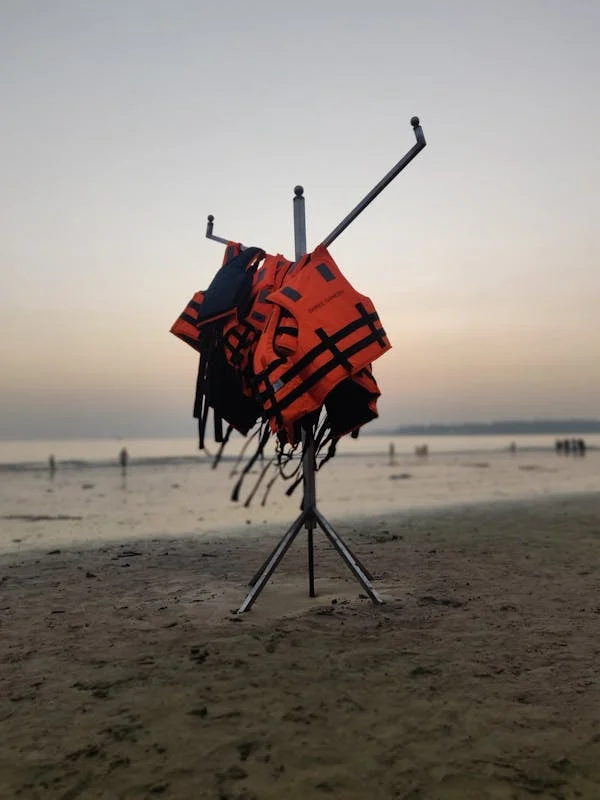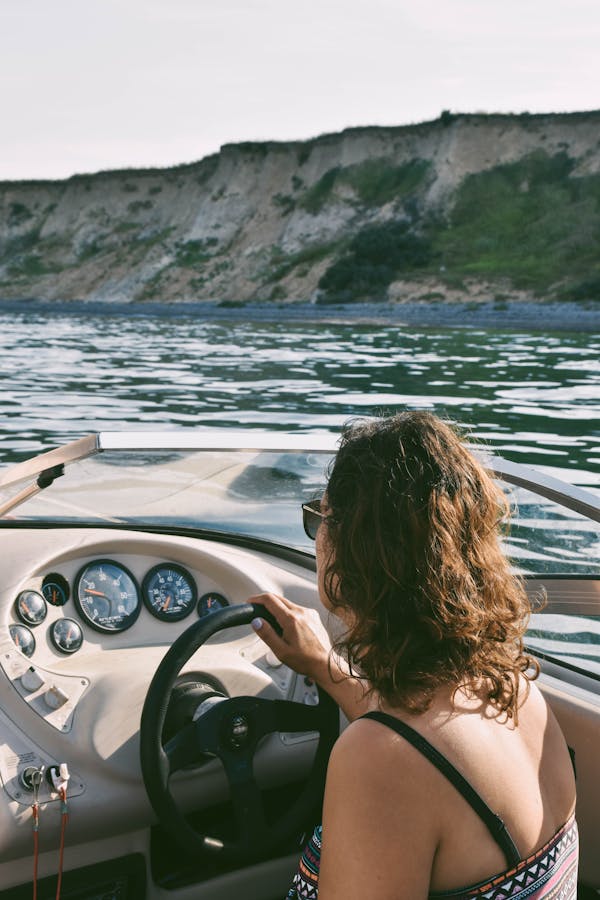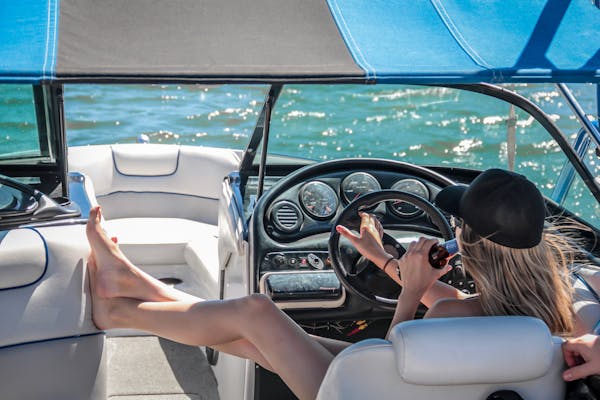Safety First: Life Jackets Are a Must

Before you set foot on the boat, it’s essential to understand the critical importance of life jackets. These devices are not just mandatory by law but are your first line of defense in an emergency. Every passenger on board should have a properly fitted life jacket, and you should know how to wear it correctly. When purchasing or renting life jackets, ensure they are Coast Guard approved and appropriate for the size and weight of each individual. Practice putting on and securing your life jacket before you leave the dock to ensure everyone can do it quickly in case of an emergency. Additionally, educate yourself on how to assist others in the water and the importance of staying calm and buoyant until help arrives.
Weather Watch: Check Conditions Ahead
The weather plays a significant role in the safety and enjoyment of your boating experience. Always check the weather forecast before heading out, paying close attention to wind conditions, tide schedules, and any potential storms. Understanding these factors can help you plan your trip and avoid dangerous situations. For instance, high winds and rough waters can make boating unsafe, especially for beginners. Learn to interpret marine weather forecasts and understand the symbols and terminology used. Carry a reliable weather radio or a marine app that provides real-time updates. Remember, even if the forecast looks clear, weather conditions can change rapidly, so stay vigilant and be prepared to return to shore if the weather turns bad. Knowing the weather helps you stay ahead of any surprises and ensures a smoother, safer trip.
Know Your Boat: Familiarize Yourself with Equipment
Getting to know your boat and its equipment is crucial for a successful and safe outing. Start by familiarizing yourself with the layout of the boat, including the location of safety equipment such as fire extinguishers, first aid kits, flares, and emergency radios. Learn how to operate the boat’s engine, including starting, stopping, and basic troubleshooting. Understanding the fuel system, battery, and electrical systems is also important. Spend time learning how to steer, dock, and anchor the boat, and practice these skills in a controlled environment. Make sure you know how to use navigation lights and understand their importance for visibility, especially in low-light conditions. Familiarity with your boat’s equipment ensures that you can handle any situation that arises and makes for a more confident and enjoyable boating experience.
Navigation Basics: Understand the Rules of the Water

Boating, like driving, comes with its own set of rules and etiquette. Understanding these navigation basics is essential to prevent accidents and ensure a smooth journey. Learn how to read nautical charts and recognize buoys and markers, which indicate safe water, hazards, and navigation channels. Understand right-of-way rules, which determine which vessel has the right to continue moving and which must yield. For instance, powerboats typically yield to sailboats, and vessels must give way to boats that are restricted in their ability to maneuver, such as large ships or fishing boats. Additionally, familiarize yourself with common navigation terms and signals, such as horn blasts used to indicate your intentions to other boaters. Practicing good boating etiquette, such as maintaining a safe speed, avoiding wake damage, and respecting wildlife and other boaters, contributes to a safe and enjoyable experience on the water.
Essential Supplies: Pack Wisely for Your Trip

Packing the right supplies can significantly enhance your boating adventure, ensuring comfort, safety, and preparedness for any situation. Start with the basics: plenty of drinking water to stay hydrated, sunscreen to protect against sunburn, and snacks or meals to keep your energy up. Bring a fully charged mobile phone and a portable charger for emergencies, as well as a map or GPS device to navigate unfamiliar waters. Don’t forget essential medications, sunglasses, hats, and appropriate clothing for the weather. It’s also wise to pack extra safety gear such as a tool kit, duct tape, spare fuses, and an anchor with sufficient rope. In case of mechanical issues, having these items on hand can save the day. Additionally, consider bringing entertainment items like fishing gear, binoculars, or a waterproof camera to enhance your experience. Being well-prepared ensures you can handle any unexpected situations and enjoy your time on the water to the fullest.
Embarking on your first boating adventure is an exciting endeavor, but proper preparation is key to ensuring a safe and enjoyable experience. By understanding these five essential facts—prioritizing safety with life jackets, checking weather conditions, familiarizing yourself with your boat and its equipment, learning navigation basics, and packing essential supplies—you’ll be ready to set sail with confidence. Each of these steps contributes to a smooth and secure boating trip, allowing you to focus on the enjoyment and beauty of being out on the water. Remember, a little preparation goes a long way in making your boating experience memorable and fun. Happy boating!


